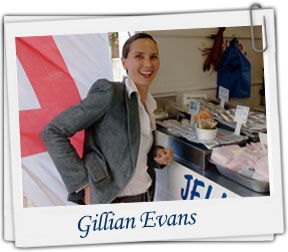 Gillian Evans is Lecturer in Social Anthropology at the University of Manchester. Gillian has a first degree in social anthropology from SOAS and an MA and PhD from Brunel University where she specialised in the anthropology of childhood and learning.
Gillian Evans is Lecturer in Social Anthropology at the University of Manchester. Gillian has a first degree in social anthropology from SOAS and an MA and PhD from Brunel University where she specialised in the anthropology of childhood and learning.
By the time I finished sixth-form-college, after having done A-levels in French, maths and economics, I was sure that I wanted to read for a degree in European business administration. I took a gap year in London and raised money from modeling assignments to fund a huge trip to India traveling through the northern regions and then trekking in the Himalayas. My gap year became three years until I discovered anthropology whilst sharing an apartment in Milan with an American model who was about to return to America to study anthropology. I had never heard of the subject and was intrigued, so we went together to the American book shop and found some introductory anthropology text books that fueled my interest. Within three months I was back in London, enrolled at the School of Oriental and African Studies to study for a degree in social anthropology and I have never looked back.
After my first degree I had two children and took eight years out of my academic and working life to be a full-time mum. Having a basic anthropological training and raising children made me reflect on how social and cultural differences are forged in childhood and so, when I heard about the new Masters degree in the Social Anthropology of Children and Child Development at Brunel University. I was able to bring both aspects of my life into communication: drawing on my own experience of being a parent to think about the question of how human knowledge – being a particular kind of human being, whether Maori, Masaii or Mancunian – arises out of processes of social learning in childhood.
I was so fascinated by the way humans come to understand who they are that I decided to try and become a university lecturer teaching anthropology and I knew that to do that I would need to read for a doctorate – a PhD. Whilst most of my contemporaries were going off to India or Africa or other exotic destinations to conduct fieldwork research I decided to stay at home in Britain. I felt strongly that in Britain there is enough food for anthropological thought on our doorsteps without having to travel abroad. What was unique about my research was that I didn’t focus on ethnic minority groups as some might have expected an anthropologist to do. There were a lot of political changes going on in the Britain at that time – 1997/8 – and the Labour government had just come into power declaring proudly that “We’re all middle class now”. Because I was living and raising my children on a council estate in Bermondsey, Southeast London, I couldn’t make sense of this New Labour mantra. As far as I could see the people that I thought of as working class were alive and well and this led me to ask: what does it mean to be working class in Britain at the turn of the century? And how do the people who are labelled as working class understand their own lives?
Using my specialisation in the anthropology of learning I focused on childhood and education and was able to gather data about educational failure in working class communities that when published last year created quite a controversy. The controversy is all about the question of why it might be that white working class boys are the most likely to fail at school in Britain. This has meant that I have become involved in speaking to the press which makes it possible for me to promote social anthropology as a subject. I have also purposefully written my book in a way that anyone can read; I am dedicated to making social anthropology, as a subject, more accessible so that the general public and young people in particular might find their way to the subject earlier and with less difficulty than I did.
I am writing a new book about my RCUK Fellowship research on the development of the Olympic Legacy in London.

